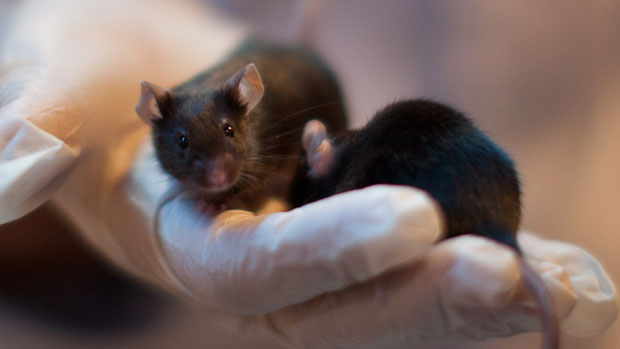Scientists reverse ageing process in mice
Cell manipulation technique leaves animals looking younger and living longer

A free daily email with the biggest news stories of the day – and the best features from TheWeek.com
You are now subscribed
Your newsletter sign-up was successful
Scientists have reversed the effects of ageing in mice using a new technique that takes their cells back to embryonic form.
The technique, which involves stimulating four genes that are particularly active during the animals' development in the womb, made the mice "look younger" and exhibit muscle regeneration, say researchers at the Salk Institute in California.
However, the effects were not only cosmetic - they also lived 30 per cent longer than usual.
The Week
Escape your echo chamber. Get the facts behind the news, plus analysis from multiple perspectives.

Sign up for The Week's Free Newsletters
From our morning news briefing to a weekly Good News Newsletter, get the best of The Week delivered directly to your inbox.
From our morning news briefing to a weekly Good News Newsletter, get the best of The Week delivered directly to your inbox.
A similar test on human skin cells "provides insight both into the cellular drivers of ageing and possible therapeutic approaches for improving human health and longevity", says Salk.
The result "shows that ageing may not have to proceed in one single direction," the institute's Dr Juan Carlos Izpisua Belmonte said.
He added: "Obviously, mice are not humans and we know it will be much more complex to rejuvenate a person. But this study shows that ageing is a very dynamic and plastic process, and therefore will be more amenable to therapeutic interventions than what we previously thought."
According to the Daily Telegraph, scientists hope to use the technique to create a drug that can "slow down, and even reverse the ageing process", although human trials could take upwards of ten years to begin.
A free daily email with the biggest news stories of the day – and the best features from TheWeek.com
If the technique works, it is predicted it could help people regularly live past 100.
-
 Political cartoons for February 16
Political cartoons for February 16Cartoons Monday’s political cartoons include President's Day, a valentine from the Epstein files, and more
-
 Regent Hong Kong: a tranquil haven with a prime waterfront spot
Regent Hong Kong: a tranquil haven with a prime waterfront spotThe Week Recommends The trendy hotel recently underwent an extensive two-year revamp
-
 The problem with diagnosing profound autism
The problem with diagnosing profound autismThe Explainer Experts are reconsidering the idea of autism as a spectrum, which could impact diagnoses and policy making for the condition
-
 Book club takes 28 years to read novel
Book club takes 28 years to read novelTall Tales And other stories from the stranger side of life
-
 State Farm stops insuring California homes, citing rising risk of wildfires
State Farm stops insuring California homes, citing rising risk of wildfiresSpeed Read
-
 The art of poetry is alive and well in South Los Angeles
The art of poetry is alive and well in South Los AngelesSpeed Read
-
 Possible tornado touches down east of Los Angeles
Possible tornado touches down east of Los AngelesSpeed Read
-
 San Francisco to introduce $5M-per-person reparations plan for Black people
San Francisco to introduce $5M-per-person reparations plan for Black peopleSpeed Read
-
 8 dead after suspected smuggling boats capsize off San Diego coast
8 dead after suspected smuggling boats capsize off San Diego coastSpeed Read
-
 Winter storms lift parts of California out of drought conditions
Winter storms lift parts of California out of drought conditionsSpeed Read
-
 Parole denied for RFK assassin Sirhan Sirhan
Parole denied for RFK assassin Sirhan SirhanSpeed Read